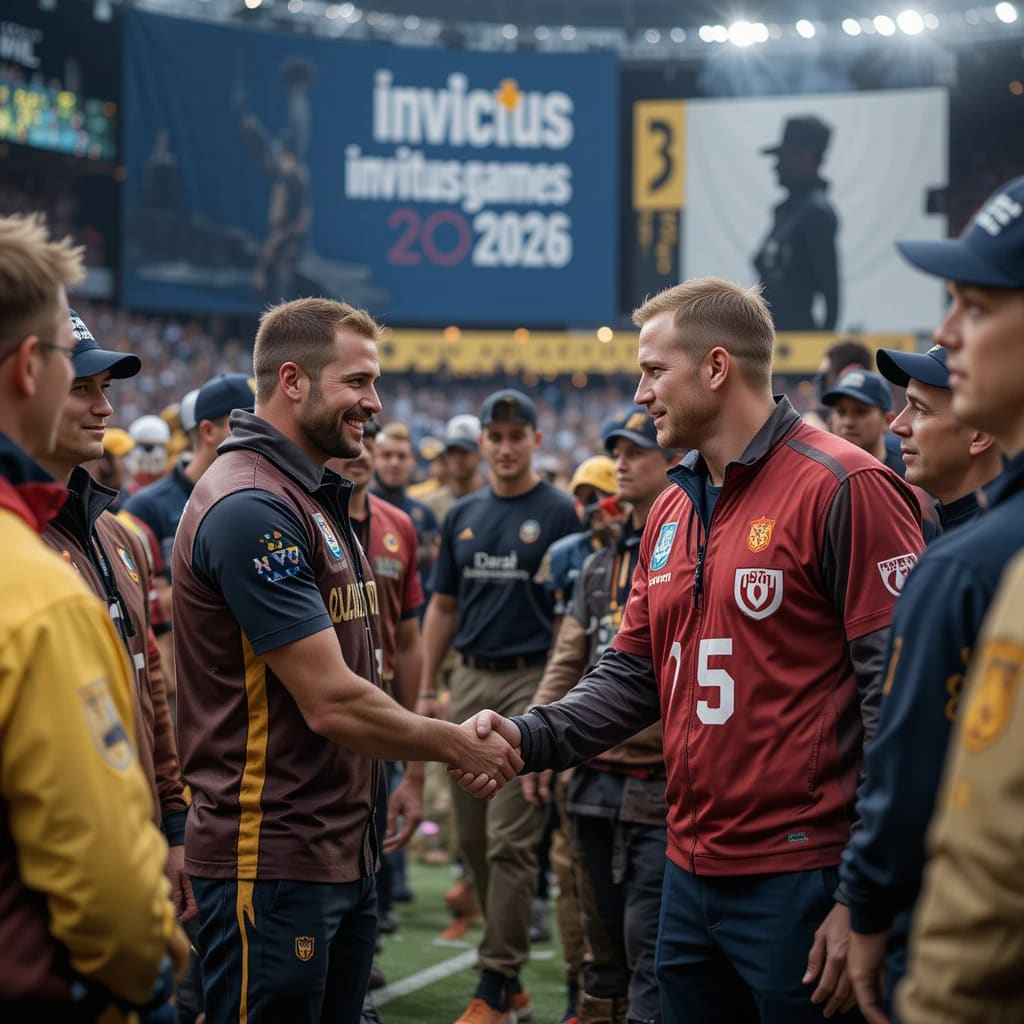For nearly a decade, the Invictus Games were synonymous with Prince Harry. It was his brainchild—his proudest achievement after leaving the British Army and stepping away from frontline royal duties. A global sporting event that celebrated wounded veterans and their strength, Invictus symbolized a new kind of purpose for the once-wild prince turned military advocate.
But as 2026 approaches, the winds of change are unmistakable. Prince Harry is reportedly out. And stepping into his role? None other than David Beckham.
Yes, that David Beckham. The global football icon, philanthropist, and longtime royal ally has now been tapped as the new public face of the Games—a move insiders say Prince Harry didn’t just dislike. He’s furious about it.
According to close sources and royal commentators, the Invictus leadership has made the bold but calculated decision to replace Harry with Beckham, citing concerns over Harry’s public image, personal controversies, and the increasingly heavy baggage tied to his name. While the Games were meant to celebrate resilience and unity, they had slowly become entangled in the personal drama of their founder.
At first glance, this switch may seem like a mere branding pivot. But for those who’ve followed Harry’s post-royal journey, this feels more like a reckoning.
For years, Harry clung to Invictus as proof that he could thrive outside the institution he left behind. It was his claim to moral ground, his symbol of continuity amid chaos. While media deals collapsed and his royal relationships eroded, Invictus remained his crown jewel.
Not anymore.
Behind the scenes, sources say David Beckham has been quietly supportive of the Games for some time. He’s attended events, met with veterans, and engaged without spectacle. His support has always been genuine—and crucially, uncomplicated. That’s something the Games desperately need as they seek to rebuild trust and focus public attention back on the veterans, not the headlines.
The tipping point, it seems, was not just Harry’s controversial memoir or Netflix deals, but the accumulation of media noise around him. Leaked texts. Allegations of entitlement. Rumors of internal friction. And lingering tensions with former friends—including the Beckhams.
Their friendship, once warm, had soured after reports emerged that Meghan Markle suspected Victoria Beckham of leaking stories to the press—an accusation that reportedly left David deeply offended. The rift widened, and their once-cordial relationship dissolved into silence.
Now, Beckham is replacing Harry at the very event he once supported as a friend. The symbolism isn’t lost on anyone.
The Invictus board had options. They could’ve given Beckham a smaller role, kept Harry as a figurehead, or orchestrated a softer transition. Instead, they made a clean cut. It wasn’t just about logistics. It was a message.
The Games are moving on.
In Beckham, the Games gain a leader with international respect, media discipline, and minimal controversy. He’s adored in Britain and respected globally. He doesn’t need to talk about himself to remain relevant. He just shows up—no drama, no declarations, no digs at his past.
That contrast couldn’t be sharper.
While Harry has become a lightning rod for royal controversy, Beckham remains a unifying figure. Veterans trust him. Sponsors like him. And the public sees him as a positive, apolitical force—something Harry, for better or worse, can no longer claim.
What stings most for Harry isn’t just the loss of a title or position. It’s the realization that the world may no longer see him as essential to the thing he created. And worse still—it’s a man he once called a friend who now wears the crown of Invictus.
This change also signals a wider recalibration in the public sphere. For all Harry’s declarations of independence and authenticity, the sympathy well is drying up. His repeated clashes with his family, tell-all interviews, and perceived self-focus have taken their toll. The once-adored prince is now met with skepticism by even his former allies.
And Invictus? It can’t afford skepticism. It’s a mission-driven initiative, centered on hope, healing, and heroism. The last thing it needs is a founder who overshadows the cause.
As the Games look to 2026 and beyond, the focus is shifting back where it belongs—on the competitors, not the controversies. And with Beckham at the helm, there’s cautious optimism that Invictus can regain its footing, restore public trust, and perhaps even thrive in a new era.
As for Harry, his next move remains unclear. The loss of Invictus cuts deep—not just professionally, but personally. It was his legacy, his anchor. And now, that anchor is adrift.
Whether this becomes a turning point for self-reflection or another chapter in a long feud with the establishment remains to be seen. But one thing is certain: the Games will go on—with or without him.
